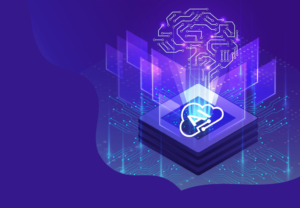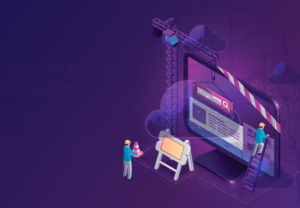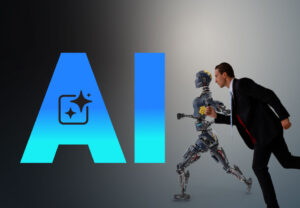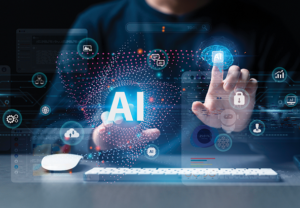Beyond the Lab: Practical AI Applications Redefining Industry Standards
“Singapore’s AI adoption in industries demonstrates practical applications across supply chains, public services, automotive sectors, and fraud detection systems. Enterprise AI initiatives through centres of excellence showcase AI-driven transformation strategies, positioning Singapore as a global leader in AI strategy 2025 implementation across diverse industrial sectors.”
The discourse surrounding Artificial Intelligence has matured significantly, transitioning from theoretical discussions and speculative futures to tangible, practical applications that are reshaping industries globally. The evolution marks a critical juncture for business leaders who must now focus on how AI can generate measurable value within their organisations. Singapore has strategically positioned itself as a hub for AI innovation, actively cultivating an ecosystem where AI’s potential can be realised in real-world scenarios, thereby driving economic transformation and maintaining competitive relevance.
For chief executives, chief experience officers, chief strategy officers, chief technology officers, and other senior executives, the imperative is clear: understand how to integrate AI into core business functions. The approach requires pragmatic AI strategy and implementation, moving beyond mere acknowledgement of the technology to its purposeful deployment. Evidence suggests a strong groundswell of individual AI adoption within the workforce; the Deloitte report highlights that 62% of employees in the Asia-Pacific region are using generative AI, with 43% for work purposes. The finding underscores the immediate relevance and existing, albeit often unmanaged, presence of AI within organisations.
A closer examination of AI adoption patterns reveals a compelling dynamic: while leaders might be discussing AI strategy at a high level, the practical, day-to-day application is frequently driven by employees who are experimenting with the technology, often without formal guidance or secure applications. The scenario, where half of the employees using generative AI for work believe their management is unaware of their usage, creates both unrecognised productivity gains and substantial unmanaged risks, including those related to security, data privacy, and intellectual property.
The transition from theoretical AI to practical application is therefore not solely a top-down initiative; it also emerges from the grassroots. Organisations that fail to acknowledge and strategically guide organic adoption risk the proliferation of shadow IT, increased security vulnerabilities, and missed opportunities for scaled, secure, and integrated AI value creation. The situation necessitates a cultural shift where AI experimentation is encouraged within a governed framework, ensuring that innovation proceeds responsibly.
Singapore's Strategic Imperative: Cultivating an AI-Driven Economy
Singapore’s commitment to becoming a global leader in AI is articulated through its updated National AI Strategy 2.0 (NAIS 2.0), launched in December 2023. The comprehensive framework positions AI as a fundamental necessity for national progress, aiming to “harness AI for the Public Good, for Singapore and the World”. The strategy is built upon three interconnected systems: Activity Drivers (industry, government, research), People & Communities (talent, capabilities, placemaking), and Infrastructure & Environment (compute, data, trusted environment, thought leadership).
The government has committed over USD 700 million over the next five years to support NAIS 2.0, with specific allocations for AI compute resources, talent development, and industry initiatives. The substantial investment signals a long-term, concerted effort to embed AI deeply within the national economic fabric.
- 1. Key Institutional Initiatives and Investments
Singapore is actively establishing new AI centres of excellence Singapore to foster value-creation activities for both AI producers and users. A significant example is the Sectoral AI Centre of Excellence for Manufacturing (AIMfg), a pilot initiative by the Ministry of Trade and Industry (MTI) and the Agency for Science, Technology, and Research (A*STAR). AIMfg aims to accelerate AI adoption in Singapore industries by manufacturing companies, addressing the prevalent shortage of AI expertise and the lack of platforms for experimentation in the sector. McKinsey serves as a strategic partner in the initiative, having introduced the AI Readiness Index for Manufacturing (ARIM) to help companies assess their AI maturity.
Another pivotal collaboration is the SIT-NVIDIA Centre for AI, launched by the Singapore Institute of Technology (SIT) in partnership with NVIDIA. The centre focuses on boosting practical AI use cases Singapore across various industries and cultivating a robust AI talent pipeline, directly supporting Singapore’s objective to triple the number of AI practitioners within the next five years. The centre facilitates research and development projects, customisation of foundational and generative AI models, and the creation of cutting-edge applications tailored to specific industry needs.
In the private sector, Singaporean tech services firm NCS has committed USD 90 million over three years to accelerate AI development and adoption. The investment targets the creation of proprietary AI intellectual property, piloting sector-specific AI projects, and comprehensive training for its 13,000 employees. NCS’s initiatives include the Sunshine.AI suite, a proprietary set of AI tools for developers, IT operations, and corporate users, and strategic partnerships with companies like Databricks and NVIDIA to co-develop new AI solutions.
The extensive national orchestration, encompassing policy, funding, talent development, and specific sectoral centres, establishes a distinct competitive advantage for Singapore. The coordinated approach reduces fragmentation, provides clear direction, and aggregates resources, simplifying the path for individual businesses to engage with and benefit from the AI ecosystem.
- 2. National Commitment to Talent Development
NAIS 2.0 aims to significantly increase the AI talent pool, tripling the number of AI practitioners to 15,000 over five years as part of AI strategy Singapore 2025. The initiative includes new AI Visiting Professorships to attract world-class AI researchers, an AI Accelerated Masters Programme to build a pipeline of local researchers, and enhanced SG Digital Scholarships for students pursuing AI-related courses. The granular approach to talent development, differentiating between “Creators”, “Practitioners”, and “Users”, reflects a sophisticated understanding of the AI value chain.
The framework acknowledges that merely having “AI users” is insufficient; a nation requires deep research capabilities (“Creators”) to generate novel AI breakthroughs and a substantial pool of “Practitioners” to translate these into practical, deployable solutions. The approach avoids the common pitfall of focusing solely on broad digital literacy without cultivating deep technical expertise.
- 3. Compute Resources and Trusted Environment
The national strategy includes investing up to USD 350 million into securing high-performance compute resources for AI innovation and capability building. Furthermore, Singapore is building capabilities in privacy-enhancing technologies (PETs) and data services. A “trusted environment” for AI is being developed through frameworks such as AI Verify, an AI governance testing framework, and the Model AI Governance Framework for Generative AI. The initiatives collectively provide the foundational infrastructure and regulatory clarity necessary for widespread and responsible AI adoption.
AI in Action: Redefining Industry Standards Across Singapore
Discussions are shifting from the theoretical to practical applications of AI across various industries. Examples include optimising supply chains, enhancing in-vehicle services, improving financial fraud detection, and streamlining public services.
- 1. Optimising Supply Chains and Procurement
AI is fundamentally reshaping global supply chain management (SCM) and procurement, moving beyond traditional efficiencies to offer unprecedented levels of agility and innovation. The sheer volume of data generated in these functions makes them particularly suitable for AI-driven insights.
Key applications include,
- a) Supplier Selection and Risk Management: AI can analyse vast datasets to identify optimal suppliers, assess risks, and predict potential disruptions.
- b) Inventory Optimisation: Predictive analytics powered by AI can significantly improve demand planning and forecasting, reducing holding costs and stockouts.
- c) Financial Optimisation: AI supports better financial management within the supply chain, identifying cost-saving opportunities.
- d) Sustainability Focus: AI can contribute to more sustainable supply chain practices by optimising routes, reducing waste, and monitoring ethical sourcing.
Generative AI’s capacity to produce new content such as images, text, audio, or video implies applications extending beyond mere analysis. The capability could encompass generating synthetic training data for complex supply chain simulations, creating dynamic, personalised communications for supply chain partners, or even designing optimised logistics networks. The technology represents a move from “understanding the past or predicting the future” to “creating new solutions or scenarios”.
- 2. Advancing Manufacturing Excellence
Singapore’s commitment to manufacturing is evident through initiatives like the Sectoral AI Centre of Excellence for Manufacturing (AIMfg), a joint effort by MTI and A*STAR. This centre aims to address the shortage of expertise and lack of platforms for AI experimentation in manufacturing.
AIMfg’s initial focus areas demonstrate the practical impact of AI across the manufacturing value chain:
- a) AI for Quality Assurance: Automating defect detection and ensuring product consistency.
- b) AI for Operations Optimisation: Streamlining production processes, improving throughput, and reducing bottlenecks.
- c) AI for Predictive Maintenance: Anticipating equipment failures to minimise downtime and maintenance costs.
- d) AI for Product/Component Design: Accelerating design cycles through AI-assisted ideation and simulation.
- e) AI for Industrial Automation: Enhancing robotic capabilities and automating repetitive tasks.
A real-world example is the collaboration between SIT, NVIDIA, and CTMetrix developing generative AI solutions for creating training data for multi-view X-ray scans of faulty electronic PCBs. The solution will train image inspection AI to detect defects accurately and facilitate rapid adaptation to new PCB designs without full model retraining.
- 3. Enhancing Financial Services and Fraud Detection
The financial sector is identified as a “short fuse, big bang” industry for generative AI impact, alongside information and communications technology (ICT) and professional services. This signifies rapid and significant disruption and transformation. AI models are highly effective in identifying complex patterns indicative of fraudulent activities, improving detection rates and reducing financial losses.
However, the increasing reliance on similar AI models and datasets across financial institutions could heighten systemic risk, procyclicality, herd behaviour, and market volatility. The concern necessitates careful consideration of model diversity and data governance. The concentration of the AI supply chain, from hardware to cloud infrastructure, training data, and foundation models, in the hands of a few large technology companies poses risks to operational resilience and cybersecurity within the financial sector.
- 4. Streamlining Public Services and Urban Mobility
Singapore’s NAIS 2.0 explicitly identifies government as a key “Activity Driver” for AI integration and advancement, aiming to improve public service productivity and optimise business lines with AI in public services Singapore applications.
In the automotive sector Singapore, SMRT Corporation is collaborating with SIT to develop a generative AI system to enhance safety investigations and reporting. The system automates incident reporting, expedites documentation, and provides an additional layer of checks for completeness and accuracy. The solution also analyses incidents, raises warnings, and extracts actionable intelligence, benefiting ground staff and boosting productivity.
Furthermore, SMRT uses advanced sentiment analysis algorithms to gain insights into commuter sentiments, preferences, and concerns, enabling near real-time identification of improvement areas and proactive issue resolution. The approach signifies a transition from reactive public service delivery to a more proactive and predictive model.
- 5. Broader Business Productivity
Generative AI is estimated to impact 16% of working hours, over 11 billion hours, per week across Asia Pacific, automating or augmenting tasks. Employees anticipate that 61% of their current tasks will be impacted within the next five years. Significant productivity gains and time savings are already being observed; 80% of generative AI users report improved speed, with daily users saving approximately 6.3 hours per week.
Beyond mere efficiency, generative AI has improved users’ ability to generate new ideas (71%), learn new skills (67%), and enhance the quality (73%) and accuracy (65%) of their outputs. The finding indicates that AI’s primary value proposition is evolving from merely automating routine, repetitive tasks to augmenting human cognitive abilities.
Enterprise AI Singapore solutions are emerging to support the shift. NCS is developing Sunshine.AI, a proprietary suite of AI tools for developers, IT operations, and corporate users, including Sunshine.Coder (an AI coding assistant), Sunshine.Operations (for automating system log analysis), and Sunshine Productivity (for summarisation).

Navigating the AI Adoption Landscape: Challenges and Strategic Imperatives for Businesses
While the momentum for AI adoption is building, businesses face several challenges that require strategic attention to fully realise the technology’s potential.
- 1. Bridging the “Silicon Ceiling”
A significant “silicon ceiling” exists for frontline employees, with only half regularly using AI tools, a stark contrast to over three-quarters of leaders and managers. The gap indicates a top-heavy adoption curve. Despite high employee usage of generative AI for work, half of employees believe their management is unaware of their usage. Businesses are playing catch-up in introducing secure applications while employees are already experimenting.
Only a quarter of frontline employees report receiving strong leadership support for generative AI. Furthermore, only one-third of employees report receiving formal training, and 35% of those are dissatisfied with it. Regular AI tool usage is significantly higher among employees who receive at least five hours of training and have access to in-person coaching.
The observation that employees are using generative AI for work, often without management awareness, points to a compelling dynamic. The “shadow AI” usage, driven by employee initiative for productivity gains, creates a paradox. While it demonstrates intrinsic motivation and potential for efficiency, it also introduces unmanaged risks related to data security, intellectual property leakage, compliance, and inconsistent output quality.
- 2. Building a Trusted AI Environment
Effective AI adoption requires robust data infrastructure and governance. Training advanced AI models on internal business data is crucial, as open-source platforms are limited for complex use cases. This necessitates improving data quality, especially for semi-structured or unstructured data. Singapore is proactively developing a trusted environment through several initiatives:
- a) AI Verify: An AI governance testing framework and toolkit rolled out in May 2022, allowing organisations to assess their AI systems against 11 internationally accepted ethics principles.
- b) Model AI Governance Framework for Generative AI: Released in January 2024, this framework sets out nine dimensions for building trustworthy generative AI.
- c) Guidelines on Securing AI Systems: The Cybersecurity Agency of Singapore (CSA) published best practices for securing AI systems across their lifecycle.
- d) Personal Data Protection Act (PDPA): Singapore’s existing PDPA applies to personal data used to train or processed by AI systems, with advisory guidelines issued by the Personal Data Protection Commission (PDPC).
Singapore’s approach to AI regulation is characterised by “agility”, with a preference for voluntary guidelines over immediate legislation, adapting as understanding of AI risks deepens. The “agile governance” strategy aims to foster innovation by providing clear guardrails and best practices without stifling rapid technological development with premature, rigid legislation.
- 3. Mitigating Concentration Risks
The AI supply chain, from hardware to cloud infrastructure, training data, and foundation models, exhibits significant concentration among a few major players. The market structure can limit consumer choice, create lock-in effects, restrict smaller firms’ access to critical inputs, and potentially misalign innovation. Reliance on a few major suppliers also creates single points of failure, increasing vulnerability to disruptions and cyber-attacks.
The concentration risks across the AI supply chain warn of single points of failure and systemic risks, particularly in finance. While leveraging leading providers offers immediate benefits, over-reliance on a single vendor or a small set of dominant players creates significant strategic vulnerabilities.
- 4. The Imperative of Reshaping Workflows
Simply introducing AI tools is insufficient; true value is generated when businesses reshape their workflows end-to-end. Half of companies, particularly in financial services and technology, are moving beyond basic productivity (“Deploy” mode) to actively redesign workflows (“Reshape” mode). Companies that reshape workflows with AI experience greater time savings, improved decision-making, and enable employees to focus on more strategic tasks.
However, the transformation can raise job security concerns among employees (46% in “Reshape” companies versus 34% in less advanced ones) and even leaders and managers (43%). Reshaping workflows fundamentally alters job roles, team structures, decision-making processes, and potentially even organisational hierarchies.
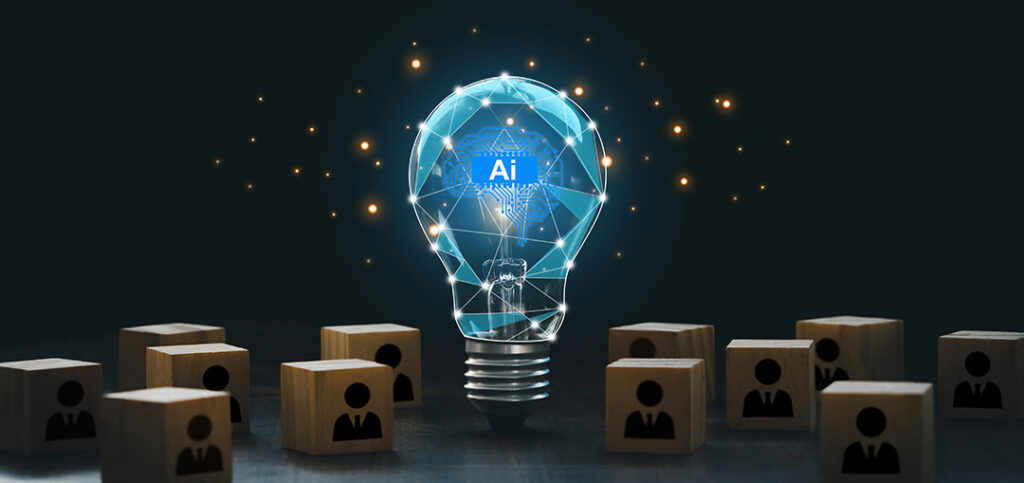
Cultivating an AI-Ready Workforce and Ecosystem: The Path Forward
The successful integration of AI into business operations hinges on a workforce capable of leveraging these new tools effectively. Continuous learning and upskilling are therefore critical. Generative AI itself plays a significant role in development; it saves users substantial time, with 45% investing the saved time in additional learning or skill development.
Furthermore, generative AI has improved users’ ability to learn new skills (67%), and nearly 40% believe it halves the time to become proficient in a skill. The finding indicates that AI is not just a tool for task completion but is becoming an active participant in human learning and skill acquisition.
Despite these benefits, a formal training deficit persists, with only one-third of employees receiving formal AI training, and many expressing dissatisfaction. The gap highlights a significant disconnect between employee willingness to learn and employer provision of structured training. Singapore is addressing the challenge through national initiatives, investing heavily in talent development, and aiming to triple the AI practitioner pool to 15,000 within five years.
Fostering robust collaboration represents another essential element. Industry-academia partnerships, such as the SIT-NVIDIA Centre for AI, actively involve undergraduate and postgraduate students in real-world AI projects, significantly upskilling them. The direct involvement bridges the gap between academic learning and industry application.
Conclusion
The shift from theoretical AI to practical applications represents a fundamental redefinition of industry standards. From optimising complex supply chains and enhancing manufacturing precision to fortifying financial systems and streamlining public services, AI’s tangible impact is clear and growing. Singapore’s concerted national strategy provides fertile ground for AI-driven transformation Singapore, offering a robust framework of investments, talent development, and governance.
Organisations that move beyond conceptual discussions to strategically integrate AI into their core operations will gain a distinct competitive advantage. The approach involves not only adopting the technology but also reshaping workflows, fostering a culture of AI literacy, and building robust governance frameworks. The data consistently shows that early and strategic adopters experience significant productivity gains, improved decision-making, and enhanced employee satisfaction.
Organisations like Motherson Technology Services, with deep expertise in digital transformation and industry-specific solutions, are well-positioned to assist enterprises in navigating the complex AI landscape. Motherson’s capabilities in end-to-end AI strategy and implementation, supply chain and manufacturing optimisation, workforce transformation and upskilling, building trusted AI environments, and accelerating innovation through partnerships enable businesses to transition from AI experimentation to operational excellence.
The competitive advantage of early, structured AI adoption becomes increasingly apparent as organisations that delay implementation face growing gaps in operational efficiency, customer experience, and market responsiveness. Success requires sustained commitment to building internal capabilities, establishing robust governance frameworks, and maintaining focus on practical applications that deliver measurable business outcomes.
References
[4] https://www.a-star.edu.sg/serc/aimfg
[5] https://research.a-star.edu.sg/articles/features/the-future-of-manufacturing/
[7] https://www.singaporetech.edu.sg/news/sit-launches-first-its-kind-centre-ai-collaboration-nvidia
[8] https://www.gep.com/white-papers/artificial-intelligence-impact-on-procurement-supply-chain
[9] https://www.ltts.com/whitepaper/artificial-intelligence-supply-chain-management
[10] https://www.bis.org/publ/bppdf/bispap154.pdf
[14] https://www.bcg.com/publications/2025/ai-at-work-momentum-builds-but-gaps-remain
About the Author:

Pankaj Chopra
Busniess Head & VP, Far East
Motherson Technology Service Limited
Pankaj has 25+ years of IT industry experience in managing business and Sales Teams across India and the Far East. As an industry veteran, Pankaj has deep domain expertise in BFSI, Enterprise, and Public Sector verticals. In addition, Pankaj is a certified AWS Business Professional and is currently helping clients in the areas of legacy modernisation & transition to the Cloud. Pankaj also focuses on meeting new-age customer demands based on domain-led next-generation services including Cloud, Industry 4.0, and Intelligent automation with client-centric business models. With over two decades of experience, Pankaj has had the opportunity to experience changing customer expectations first-hand, work with industry stalwarts to shape the future of work and navigate the evolving business paradigm while enabling him to forge critical relationships with clients and partners, including Fortune 500 companies.

 August 7, 2025
August 7, 2025 Pankaj Chopra
Pankaj Chopra







